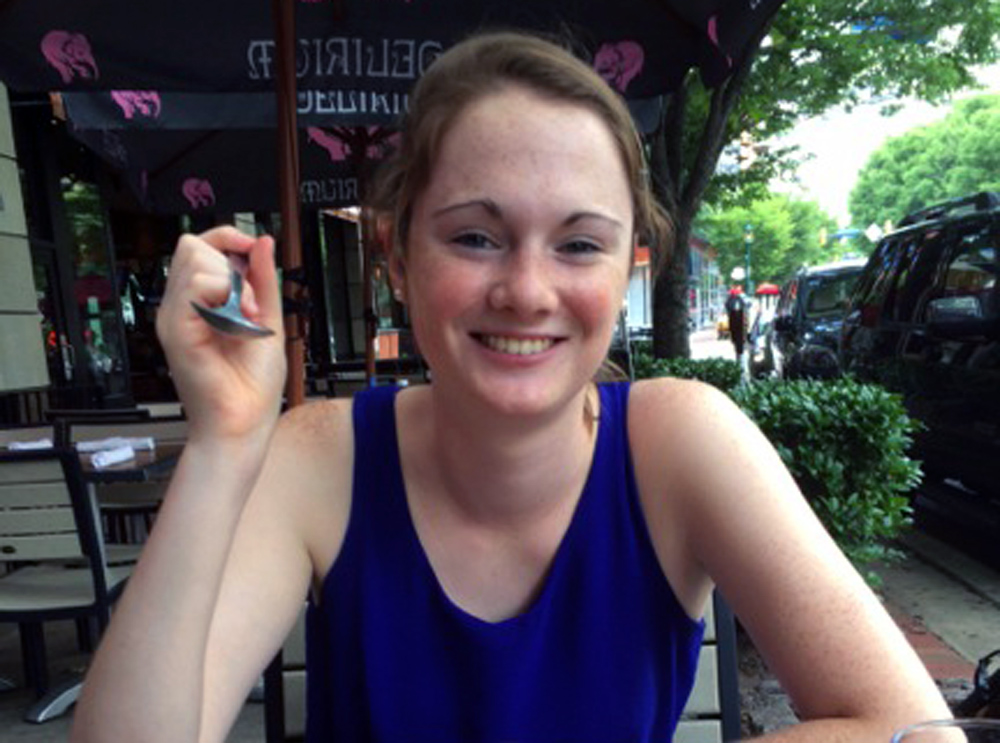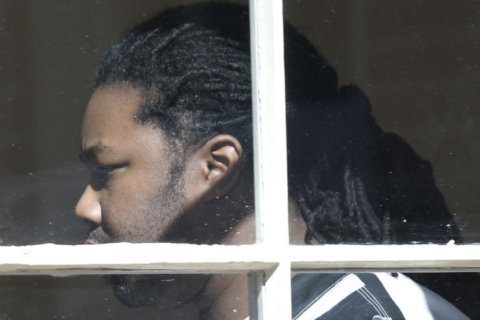
Former Albemarle County, Virginia, prosecutor Denise Lunsford didn’t know the victim’s name at the time, but she had the incident marked on her calendar: “I remember hearing there was a person that was missing from the city of Charlottesville and being sort of brought up to speed by the police department within the first day or two.”
Five years ago, on Sept. 13, 2014, 18-year-old University of Virginia student Hannah Graham was last seen on the Downtown Mall in the early morning hours. Five weeks later, her remains were found behind an unoccupied home on a winding stretch of Old Lynchburg Road, in Albemarle County.
“It seems like yesterday that it occurred,” said former Charlottesville Police Chief Tim Longo, who was the public face of the search for Graham. “Five years [have] passed very quickly.”
Longo is now an assistant professor and program director for public safety at the University of Virginia School of Continuing and Professional Studies, and a member of the adjunct faculty in the School of Law.
“I think of that event often because I’m here in the midst of this community watching these young people cross these grounds every day,” Longo told WTOP.
Lunsford said while initial efforts in the search for Graham, of Alexandria, Virginia, centered in Charlottesville, that search soon branched out into her jurisdiction.
“The county is roughly 740 square miles, and the city is 10 square miles,” said Lunsford, who was elected the Commonwealth’s attorney in 2007. “It sort of occurred to me as searches expanded that obviously there’s a lot more county to explore, and the possibility of Miss Graham being found in the county was growing every day.”
A few days later, Longo pleaded with the public to come forward with information about a man who was seen with Graham at Tempo restaurant after 1 a.m. Longo identified that man as Jesse Leroy Matthew, Jr.
“Once they seized and searched Mr. Matthew’s car, there was DNA on the car,” Lunsford recalled. “This was obviously developed after he became a suspect, because they were searching his house at the time.”
On Sept. 24, Matthew was taken into custody in Galveston, Texas, on a Charlottesville arrest warrant for abduction with intent to defile and was returned to Virginia.
By the end of September, Virginia State Police said Matthew’s DNA linked him to the 2009 murder of Virginia Tech student Morgan Harrington, as well as an unsolved 2005 rape in Fairfax, Virginia.
Yet, Graham was still missing until Oct. 18, 2014.
“I have a recollection of getting a call on a day there was something going on with my family,” Lunsford said. “My daughter was 12 years old at the time, and when I explained police had found a body in Albemarle County, her first question was ‘Is it Hannah?'”
Lunsford told her daughter forensic testing would need to be done.
“I remember having to explain that whatever this family function was, I couldn’t go, because I had to go to the [crime] scene.”
On Feb. 10, 2015, shortly after Virginia’s chief medical examiner announced the remains were Graham’s, Lunsford announced Matthew would be charged with first-degree murder, as well as abduction charges — but not capital murder, which could have made Matthew eligible for execution.
“There was a lot of interest in this case,” Lunsford understated. “I was thinking ‘What do I feel like I can prove as a prosecutor now?’ Not what I feel like I thought happened, or what [other evidence] might be out there at some point as police continued to work the case.”
Longo supported Lunsford’s decision: “I had the utmost confidence in Denise and her evaluation of the case.”
“She had both a legal and ethical obligation to ensure what she charged was something she believed she could prove,” Longo said. “I wasn’t about to second-guess the person who would have to stand in that courtroom and prove the elements of the case, on behalf of the commonwealth.”
Yet Longo believed Lunsford would eventually be able to charge Matthew with capital murder.
“Yeah, I was confident we would come across additional information that might cause her to revisit those charging decisions,” Longo said.
By May 2015, with additional forensic findings, Lunsford announced Matthew was now charged with capital murder in Albemarle County.
The trial was set for July 5, 2016, but Lunsford was defeated in the November 2015 election by Robert Tracci.
After being the public face of Matthew’s prosecution, Lunsford was not present when Matthew pleaded guilty to the murders of Graham and Harrington and received four life sentences.
“The resolution, with a plea to life, agreeing he would not seek geriatric or medical release, was appropriate,” said Lunsford. “That was a resolution I would have come to, if the defense had agreed to it, while I was in office.”
The plea agreement avoided putting the Graham or Harrington families through a “very difficult process for families,” Lunsford said. “It can go on for years, as we saw recently in the [James Alex Fields, Jr.] case.”
Lunsford was Fields’ lead defense lawyer in his state murder and federal hate crimes convictions in connection with the 2017 murder of Heather Heyer during the white nationalist Unite The Right rally.
In May, Matthew revealed he had cancer. He was transferred from the Red Onion maximum security prison to Sussex One State Prison in Waverly, Virginia, about an hour south of Richmond, to receive treatment.
Nearly four months later, George Sisson, a spokesperson with Virginia Department of Corrections, told WTOP he was unable to comment on Matthew’s treatment, condition or prognosis, citing privacy rules. Online court records show he remains at Sussex One.
Contacted by WTOP, Matthew’s appointed capital defender, Douglas Ramseur, offered no comment from his client, but reflected personally on the anniversary.
“The impacts of these tragic events are still felt by everyone involved,” Ramseur said. “The healing process continues and it is my hope that through this process we will learn as a community how to prevent similar tragedies in the future.”
Graham’s parents have largely stayed out of the spotlight after Matthew was sentenced to spend the rest of his life in prison for murdering their daughter.
Later this month, Graham’s friends will hold the Fourth Annual Hannah Graham Memorial Softball Tournament, to raise money for charities designated by her parents. Hannah Graham was a standout athlete who played softball for 10 years.
Five years after Graham’s disappearance and murder, Lunsford said she has noticed young people seem to have been affected by the Graham case.
“They are certainly more careful than I was at that age, or probably am now, in terms of being aware of my surroundings, and traveling with other people when on the Mall, or at football games,” said Lunsford. “And I’m grateful for that.”
Harrington’s parents have formed Help Save the Next Girl, to provide support to victims’ families, and “to keep young women and campus communities alert to predatory danger,” according to its website.
Longo said the Graham and Harrington tragedies provided “some teachable moments.”
“How can we strengthen our means of identifying and investigating sexual predators who plague communities like ours, large and small, who take advantage of the vulnerabilities of young people who find themselves in communities like a university town,” Longo said.
In June 2018, Virginia Gov. Ralph Northam signed bills that would expand the list of misdemeanor convictions that trigger mandatory collection of DNA for the commonwealth’s databank.
“If anything good can come out of this, perhaps another girl won’t go missing,” Lunsford said.
“For moms and dads who deposit their kids at universities across this country, what they’re doing is entrusting their children to entire communities and the criminal justice elements within those communities,” said Longo. “This community rose up and helped us fulfill a promise we made to the Grahams, and I’ll be forever grateful for that.”






